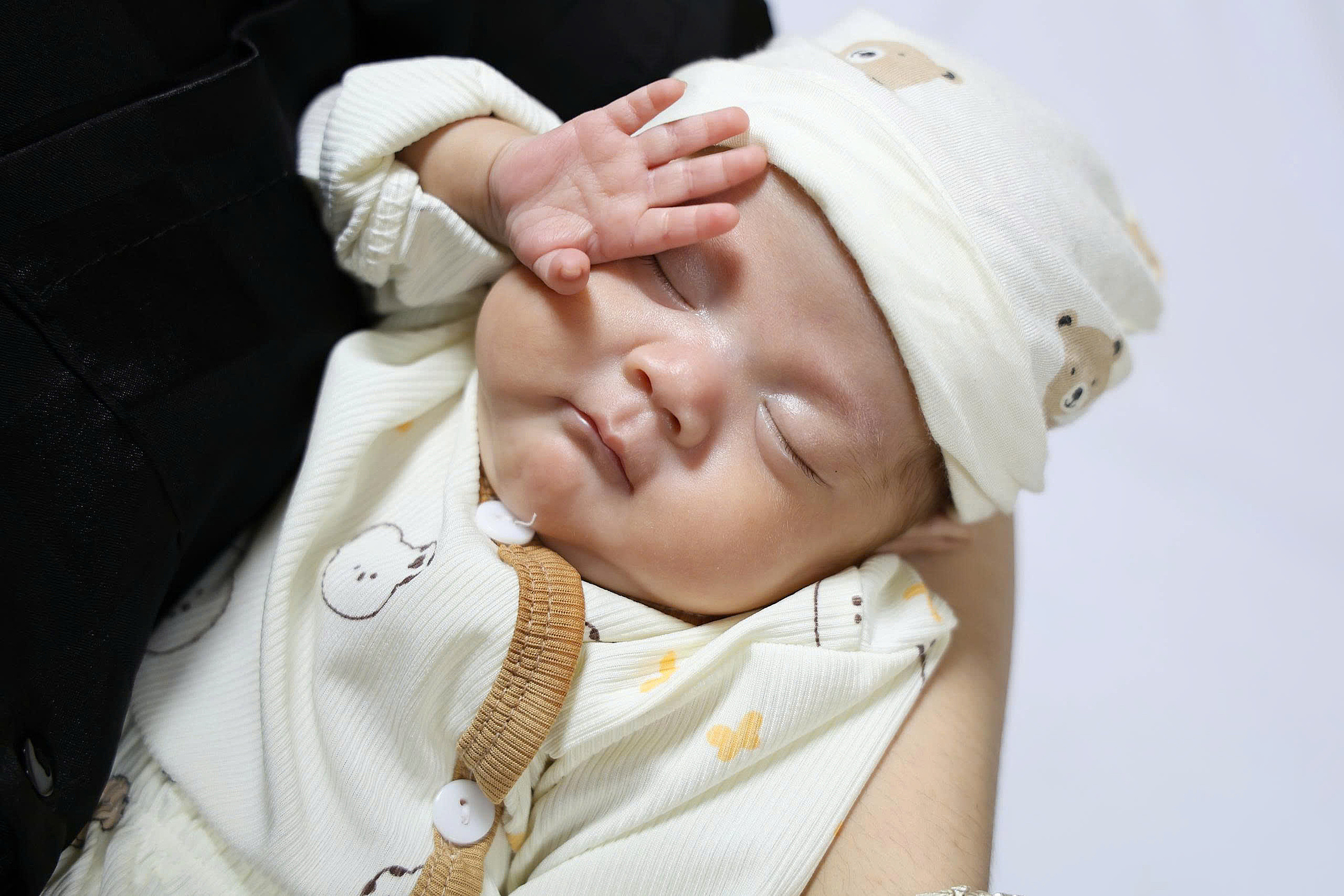On 23/7, the baby was discharged in good health, breathing and feeding on her own, to the joy of her family and the medical team.
Born in mid-April, the baby girl didn't cry; her body was cyanotic and showed almost no reflexes. Recognizing this as a case of extreme prematurity with a fragile condition, doctors in the neonatal department immediately provided emergency care in the delivery room, intubating her and providing ventilation support before transferring her to the intensive care unit.
"Her leg was as small as an adult's little finger, her skin was thin and fragile, and she faced countless risks such as respiratory failure, brain hemorrhage, and necrotizing enterocolitis," said Doctor Nguyen Duc Hau, head of the neonatal department.
Given the infant's critical condition, a specialized treatment plan was implemented. This included placing her in an incubator, providing mechanical ventilation, administering surfactant to support lung development, and establishing central lines for monitoring and nutrition.
The first few days were a tough battle as the baby repeatedly experienced cyanosis, decreased heart rate, and blood sugar fluctuations. The medical team had to carefully consider every milliliter of nutrient solution and closely monitor every subtle change to adjust the treatment plan promptly, Doctor Hau explained.
 |
The healthy baby is discharged at 2 kg after 100 days in hospital. Photo: Ha Nguyet |
After 5 days, her respiratory condition gradually improved. By the third week, she began to gain weight, breathe on her own, and take her first sips of breast milk.
After 80 days, she was weaned off the ventilator, transitioned to oxygen support, and reached a weight of 1.7 kg. At this point, she was reunited with her mother, started practicing breastfeeding, and received kangaroo care (skin-to-skin contact), an essential therapy for stabilizing heart rate, promoting brain development, and boosting immunity.
On the day of discharge, her weight had reached 2 kg. "We knew this would be a challenging journey, requiring absolute meticulousness and care," said Doctor Hau.
The World Health Organization (WHO) reports that over 90% of extremely preterm babies (under 28 weeks) in low-income countries die within the first few days of life due to a lack of essential care such as warmth, feeding support, and basic respiratory care.
To minimize the risk of premature birth and its associated complications, doctors recommend that expectant mothers receive careful prenatal care, maintain a balanced and healthy diet, and attend regular checkups as advised by their doctor. This allows for timely detection and management of infections, blood pressure issues, and other conditions that could affect the fetus.
Le Nga












